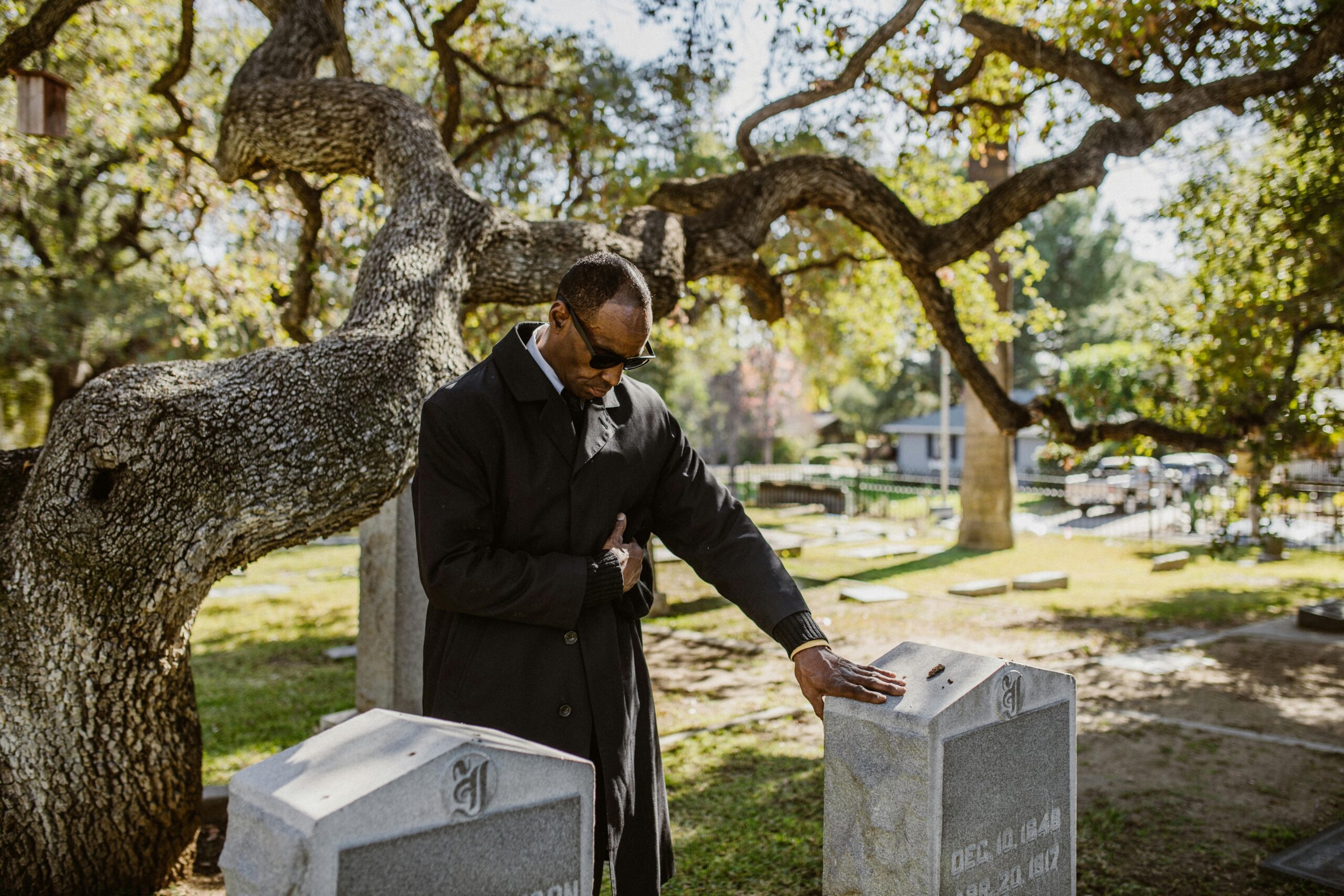Not Many People Know What It Means To See Someone Who Has Passed Away In Your Dreams

Have you ever woken from a dream so vivid it felt like a conversation—a fleeting moment with someone you’ve lost? It’s an experience so universal, yet profoundly intimate. Dreams of loved ones who have passed often leave us with more questions than answers. Were they trying to tell us something? Was it simply a memory surfacing, or could it have been something more?
Dreams have fascinated humans for centuries, seen as portals to the subconscious or even bridges to the unseen. Psychologists call them the mind’s way of processing emotions, while spiritual traditions often regard them as sacred messages. But when the face in the dream is someone you loved—and lost—those interpretations take on a deeper, more personal weight.
Why Do We Dream of Loved Ones Who Have Passed?
 Image source: Pexels
Image source: Pexels
Dreams of loved ones who have passed can feel like sacred moments where memory and emotion intertwine. Psychologists suggest these dreams often arise from the mind’s effort to process unresolved emotions, lingering grief, or moments of joy connected to the departed. The grieving process isn’t linear, and dreams offer a canvas to explore emotions we might struggle to face in waking life.
On a deeper level, these dreams reflect the lasting bonds we share with those we’ve lost. Love transforms after loss, finding new ways to manifest through cherished memories and feelings of connection. For many, these dreams are not only about remembrance but also about seeking comfort. They often bring moments of peace—whether through a warm embrace or an encouraging smile—that remind us that even in absence, connection endures.
Common Interpretations of Dreams About the Deceased
https://www.youtube.com/watch?v=VpDPHXIPq1Q
Dreaming of a loved one who has passed away often feels deeply significant, leaving us searching for meaning. While interpretations vary based on personal beliefs and experiences, the following three common themes often emerge:
- Healing and Closure: One of the most common interpretations is that dreams provide a pathway to healing and closure. When someone we care about is no longer with us, unresolved emotions or unfinished conversations can weigh heavily on the heart. Dreams create a symbolic space where these feelings can be addressed. Even something as simple as a smile from a loved one in a dream can leave behind a profound sense of peace, helping to ease the pain of loss in a way words might not.
- Messages and Signs: Many believe that dreams about the deceased are messages or signs from the spiritual realm. Across cultures and traditions, dreams are often seen as a connection between the physical and metaphysical worlds. These encounters may feel purposeful, as though the loved one is offering reassurance, guidance, or a reminder of their continued presence in another form. While skeptics might attribute such dreams to wishful thinking, those who experience them often describe an emotional resonance that feels deeply real.
- Processing Grief: Dreams can also represent the subconscious mind’s way of processing grief. Losing someone close leaves a mix of emotions—sadness, love, regret, or even guilt—that need to be addressed. Dreams allow these feelings to surface in symbolic or narrative forms, whether through reliving fond memories or confronting difficult moments. By acting as emotional checkpoints, these dreams can gently guide individuals through their healing journey.
In the end, whether dreams about the deceased bring healing, messages, or a way to process grief, they often hold deep emotional significance, offering comfort and insight during times of loss.
Spiritual and Cultural Perspectives
 Image source: Shutterstock
Image source: Shutterstock
Across cultures and spiritual traditions, dreams of loved ones who have passed hold profound meaning. They are often seen as sacred moments that transcend physical existence, offering a connection to the spiritual realm or a reminder of enduring emotional ties.
In many traditions, dreams are viewed as messages from beyond. Native American cultures regard them as a bridge between worlds, where ancestors impart wisdom or reassurance. Similarly, in Hinduism and Buddhism, dreaming of the departed can signify blessings or reminders of their presence.
Cultural customs also emphasize the importance of honoring these dreams. For example, in Mexican traditions like Día de los Muertos, dreams of the deceased are celebrated as joyful reunions. In Chinese culture, dreams of ancestors are a way to maintain respect and connection with those who have passed.
Whether interpreted as divine messages or emotional echoes, these perspectives reflect the universal human desire to maintain a connection with loved ones who have shaped our lives.
Reflecting on Dreams of the Departed
Dreaming of someone who has passed away can be deeply emotional, leaving you pondering its significance. Rather than dismissing these dreams as random or meaningless, reflecting on them can provide insights into your emotions, memories, and even your spiritual beliefs. Here are practical steps to help you thoughtfully interpret and engage with these dreams.
- Keep a Dream Journal: Documenting your dreams as soon as you wake up helps preserve the details before they fade. Write down everything you remember, including the setting, interactions, and emotions involved. Pay attention to recurring themes, symbols, or patterns. Over time, your journal may reveal connections between your dreams and your waking life, offering clues about their significance.
- Examine Your Emotional State: The emotions you experience during the dream often hold the key to its meaning. Were you comforted, fearful, or confused? Reflect on how those emotions relate to your current life situation or your relationship with the deceased. A dream that brings peace may signify acceptance or closure, while one filled with tension could point to unresolved feelings or unfinished conversations.
- Seek Guidance or Support: Sometimes, dreams of the deceased can feel overwhelming or confusing. Sharing your experience with someone you trust—a grief counselor, spiritual advisor, or close friend—can help you gain clarity. They may offer insights you hadn’t considered or simply provide a compassionate space to explore your feelings. If the dream resonates on a spiritual level, consider consulting a spiritual leader or engaging in practices like prayer or meditation for deeper understanding.
- Reflect on Personal Context: Consider what was happening in your life before the dream. Were you thinking about the loved one more often, or facing challenges they might have helped you with? Dreams often reflect the mind’s attempt to process emotions or provide guidance related to your current circumstances. Connecting the dream to your personal context can help you interpret its relevance and meaning.
By taking the time to reflect on these dreams, you can uncover their deeper layers and use them as opportunities for healing and personal growth. Whether they provide closure, guidance, or a chance to reconnect with cherished memories, these dreams are a powerful reminder of the bonds that transcend time and space.
A Gentle Reminder of Enduring Bonds
 Image source: Pexels
Image source: Pexels
Dreams of loved ones who have passed are more than fleeting images; they are windows into the enduring bonds that connect us. Whether they bring healing, deliver messages, or help us process grief, these dreams serve as powerful reminders of the love that remains, even in absence.
Take these moments as an opportunity to reflect and grow. They may guide you toward closure, offer comfort, or remind you of the lessons and memories that shaped your life. Whether you view them as spiritual encounters or the mind’s way of processing emotions, their significance cannot be ignored.
In the end, these dreams remind us that love transcends the physical and continues to influence us in meaningful ways. They invite us to honor the connection we’ve shared, find peace in the present, and carry forward the legacy of those we hold dear.
Featured Image source: Pexels
Loading...






